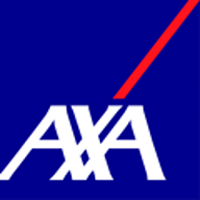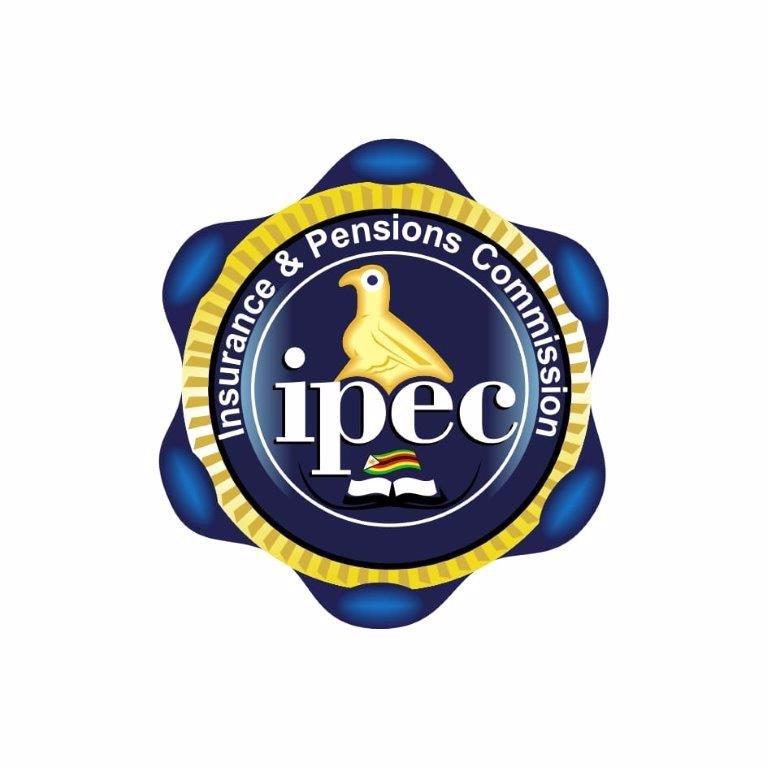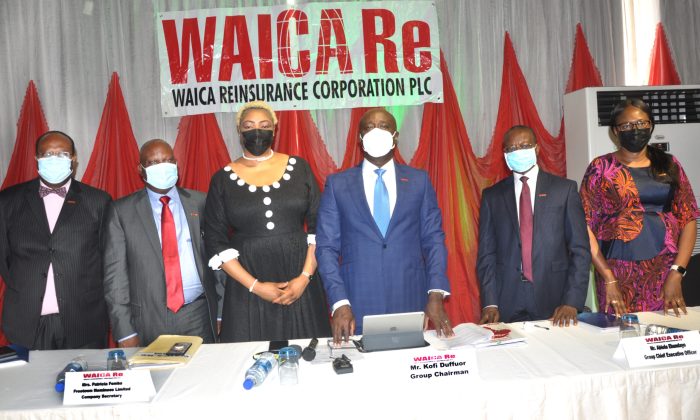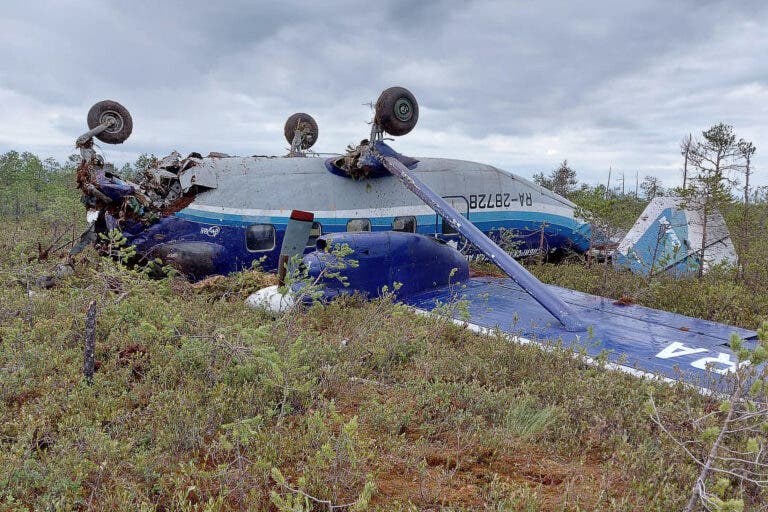CAPTION:
L – The Director-General, WAICA Secretariat and Directorate, WAICA Reinsurance Corporation Plc, Mr. William B. Coker; Director, Mr. Adeyemo Adejumo; Company; Secretary, Mrs .Patricia Fomba; Group Chairman, WAICA Reinsurance Corporation Plc, Kofi Duffuor; Group Managing Director/CEO, Abiola E. Ekundayo, and a Director, Mrs. Senor Thomas-Sowe, during the corporation’s annual general meeting in Lagos
By Favour Nnabugwu
The West African Reinsurance Corporation (WAICA Re) has announced that its underwriting profit grew from $5.0 million in 2019 to $8.8 million in 2020, a growth rate of 77 percent
The company at the 8th Annual General Meeting (AGM) held virtually at the weekend recorded a net claims of $30.5 million in its 2020 financial year, which translated to 63 per cent increase from the $18.7 million it recorded in 2019.
The claims were incurred across most of the nine countries it is operating from. The nine countries include; Nigeria, Ghana, Liberia, Kenya, Sierra Leone, Tunisia, The Gambia, Zimbabwe and Côte d’Ivoire.
The Group Chairman, Kofi Duffuor, added that, facultative claims contributed 59 per cent of the total claims paid whilst treaty claims was 41 per cent, stressing that, the net incurred loss ratio increased to 39 per cent in 2020 compared to 31 per cent in 2019.
Underpinned by increase in business volumes and increased claims reserve, net claims incurred increased by 63 per cent to $30.5 million in 2020 from $18.7 million in 2019. Facultative claims contributed 59 per cent of total claims paid whilst treaty claims was 41 per cent. Consequently, the net incurred loss ratio increased to 39 percent in 2020 compared to 31 per cent in 2019.
To him, “Net commission expense rose to $23.5 million in 2020 from $17.6 million in 2019, representing 33 percent growth largely as a direct function of growth in earnings. The commission ratio also remained flat at 30 percent in line with both company trend and industry averages.”
Operating expenses, he said, decreased year on year by 4 per cent, given management efforts to reduce cost, hence, operating expenses fell to $17.1 million in 2020 from $18.2 million in 2019 even as expense ratio equally fell to 22 per cent in 2020 from 31 percent in 2019.
Overall, combined ratio improved to 91 percent in 2020 having fallen from 93 percent in 2019, he pointed out.
Stressing that WAICA Re has continued to display a strong underwriting profitability as a result of sound underwriting and risk selection, he noted that, technical profit grew from $23.2 million in 2019 to $26.2 million in 2020, representing a 13 per cent growth.
“Underwriting profit grew from $5.0 million in 2019 to $8.8 million in 2020, a growth rate of 77 percent. Whilst Technical margin fell from 40% in 2019 to 33 per cent in 2020, underwriting margin improved from 9% in 2019 to 11 percent in 2020,” he pointed out.
Stating that the reinsurer’s investment and other income witnessed an increase of 14 per cent from $3.4 million in 2019 to $3.9 million in 2020 even though there was a general fall in interest rates especially in Anglophone West Africa, he added that, return on investment fell from 4 percent in 2019 to 3.7 per cent in 2020.
To him, “management continues to review the investment portfolio to help improve the return on investment”
“The above Profit and Loss analysis shows that, the major drivers of profit in 2020 were the growth in premium income, improved underwriting performance and a reduction in management expenses.”
Improved premium collection, he stressed, enabled the group to increase cash and investment assets by 29 per cent to $114.9 million in 2020 from $$88.9 million in 2019.
The group’s cash and investment assets, he stated, accounts for 62.5 per cent of total balance sheet size. Liquid assets increased to $105.2 in 2020 from $79.3 million in 2019 giving the group a strong liquidity metrics compared to claims and technical liabilities,he said.
He announced to the shareholders that the board of directors recommended a dividend of 0.0814 per share amounting to $4,000,000 (2019; $3,000,000).
This dividend will be paid to shareholders whose names appear in the register of the Corporation as at the date of the AGM, he assured.
The board of the firm, he said, recommended the issuing of additional capital of 10 million shares in 2020 by a rights issue at a price to be determined by its financial advisors.
“There was also the intention to invite strategic investors to take up shares in the Corporation. These decisions were suspended due to the COVID-19 pandemic and the uncertainties that surrounded it.
“This year we would like to carry out the exercise as it will strategically position the corporation to underwrite larger businesses especially in the oil and gas sector among others, expansion of our ICT and to ensure a strong balance sheet that will make us more competitive in the reinsurance market,” he said.










